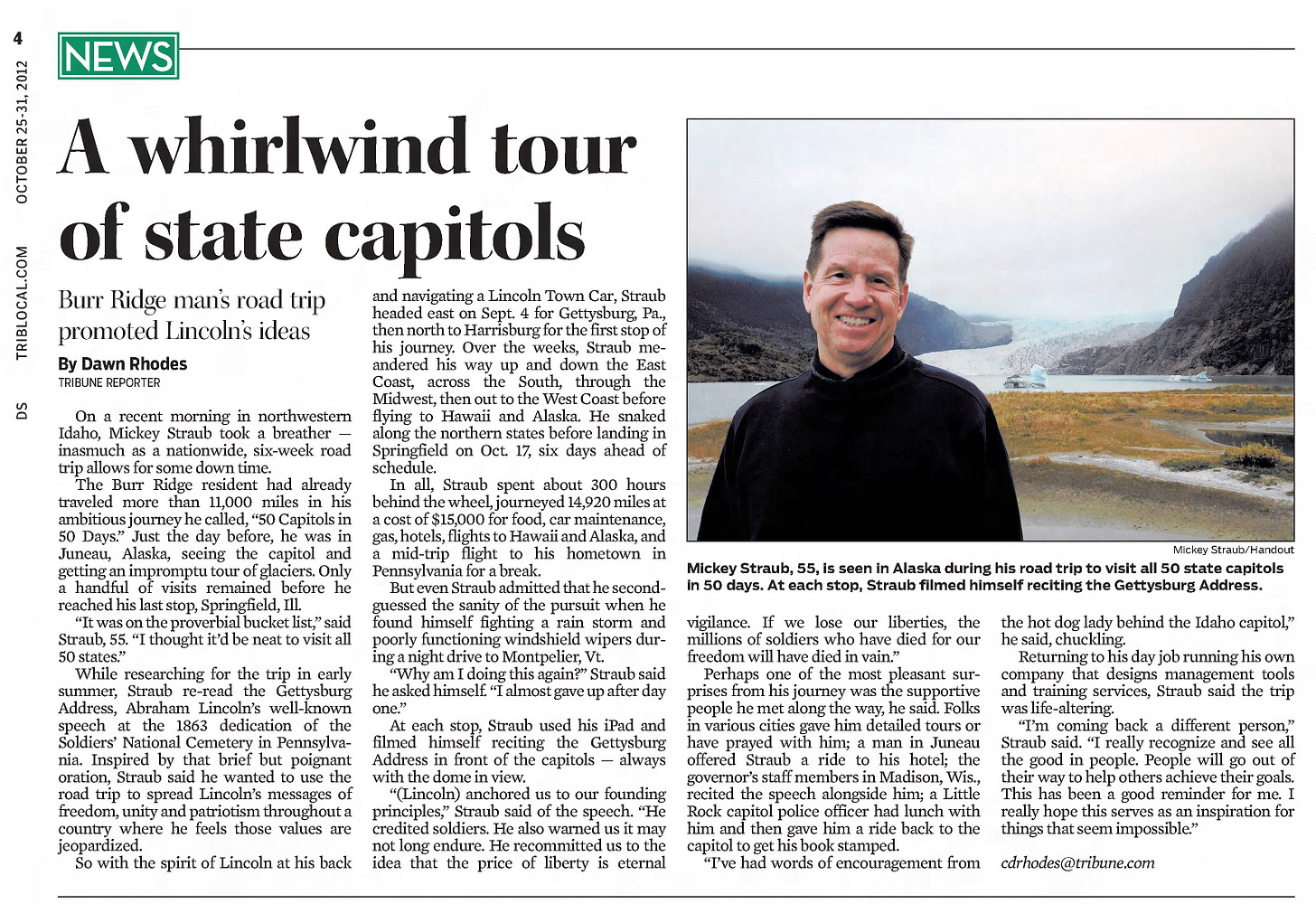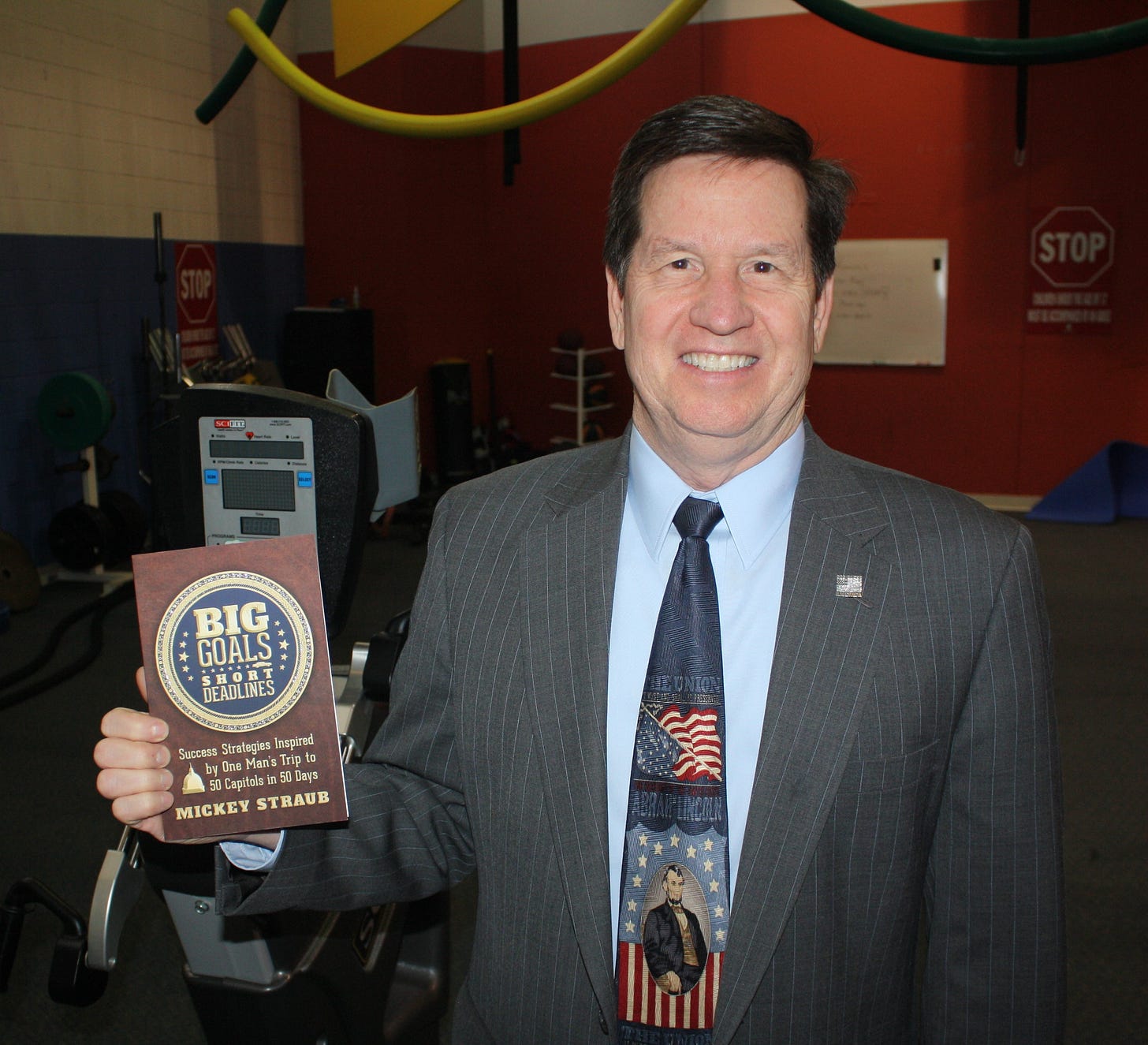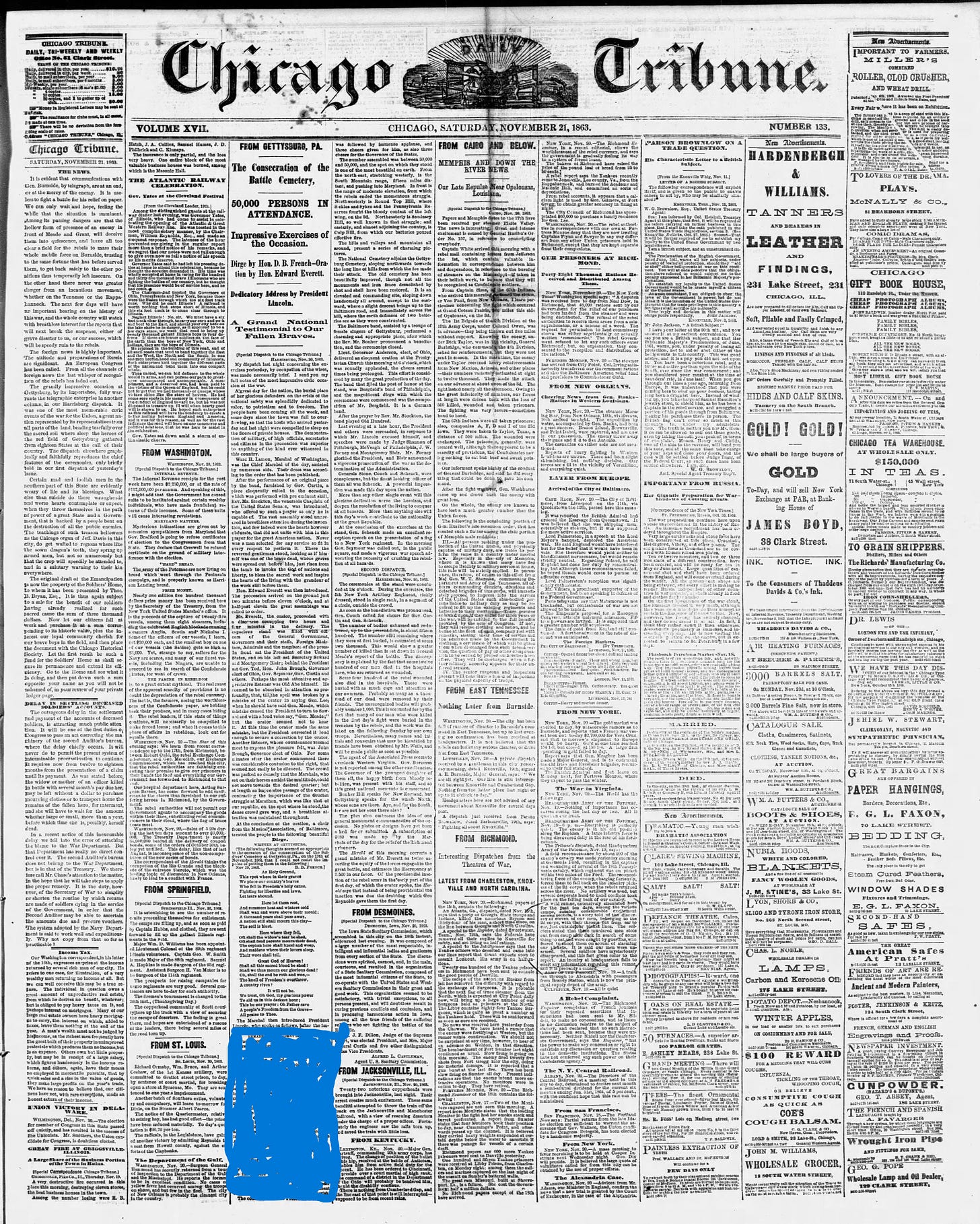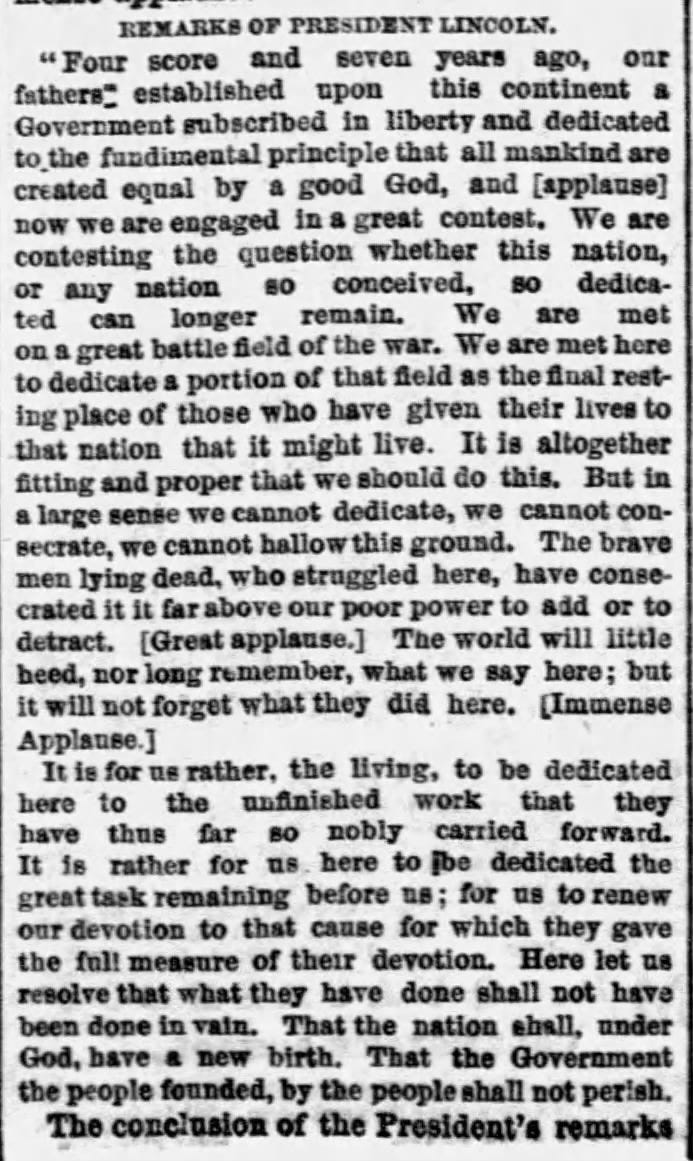Eight score years ago...
Recalling Mickey Straub's 2012 expedition to recite the Gettysburg Address at all 50 U.S. capitols--plus a closing plea to preserve the ideals eloquently expressed by Abraham Lincoln.
Eight score years ago, a man stood before thousands of people in Pennsylvania and delivered brief remarks.
His 272-word speech included this line: “The world will little note, nor long remember what we say here."
On that humble note, Abraham Lincoln was way off-base. As a whole, however, he eloquently expressed the American ideals of freedom, equality, and self-government “of, for and by” the people.
Tomorrow is the 160th anniversary of the Gettysburg Address. I knew about it for most of my life, but my awareness reached an entirely new level 11 years ago when I helped a friend promote the famous aspirational words and their continued relevance.
His name is Mickey Straub and at the time he resided in Burr Ridge, a Chicago suburb where he would later become mayor. In 2012, he was a private citizen whose strong sense of patriotism sparked a remarkable—and seemingly impossible—idea: why not try to visit all 50 U.S. capitols in 50 days, reciting the Gettysburg Address at each stop?
As Mickey told one reporter, “I’m a guy from the land of Lincoln, in a Lincoln, quoting Lincoln.”
Aside from flights he took to Alaska and Hawaii, he did it all in a Lincoln Town Car he’d purchased for this purpose. He finished the job in 44 days.
I wrote the news release about Mickey’s trip, then provided media relations in the Chicago area and at various stops along his journey. The story was compelling; securing extensive news coverage wasn’t hard.
Later, Mickey wrote a book that drew extensively from his experience. It’s aptly entitled Big Goals, Short Deadlines.
With all the photos and journal entries that he captured during his six weeks on the road, Mickey also has the makings of a coffee table book that I've often told him would be a hit. Can't you picture it in state capitol gift shops?
He’s a pretty busy guy, so that volume hasn’t yet taken shape. Until then, I invite you to check out his website, 50 Capitols in 50 Days, a detailed chronicling of his once-in-a-lifetime adventure.
As for the Gettysburg Address, you can find that in plenty of places. Eight years ago, a highlight of a family trip to Washington, D.C. was visiting the Lincoln Memorial, where the words are carved into one of the walls. On the web, one terrific resource is the Abraham Lincoln Presidential Library and Museum.
Putting the Address’s Brevity in Context
To put the Gettysburg Address’s extraordinarily powerful brevity in context, consider the role played by the man who spoke before Lincoln, Edward Everett. Toward the end of a career that included serving as a Congressman, Senator, Governor of Massachusetts and U.S. Secretary of State, Everett was one of the nation’s most renowned orators.
On that Thursday in Gettysburg, Everett spoke for two hours and four minutes (according to a report two days later in the Chicago Daily Tribune).
In all, Everett uttered 13,607 words, or almost precisely 50 times more than Lincoln’s address. If you’ve got some spare time, you can read Everett’s remarks here.
Everett added some words a short time later, lauding Lincoln in a letter: “I should be glad, if I could flatter myself that I came as near to the central idea of the occasion, in two hours, as you did in two minutes."
In conclusion, below are two images from the Chicago Daily Tribune of Nov. 21, 1863, two days after Lincoln’s remarks. The first reveals just how little of the front page those remarks consumed; the second zooms in on Lincoln’s remarks, one of at least five slightly different versions that are in circulation.
During a period in U.S. history where undemocratic, authoritarian forces are clamoring for power—this Independent voter is giving an extra-long look your way, Donald Trump—may the majority of America remain resolved in preserving the principles so eloquently represented by President Lincoln.
After all, “the great task remaining before us” wasn’t solely for Americans in 1863 as the Civil War raged. That great task is ever before us.








Well I agree. Great column about a great journey and a great man and a great speech. Lincoln's Gettysburg Address is exhibit "A": for less is more. And in fact as you point out Mr. Everett recognized that. It's a classic. And just think ... no speech writers. If only we were so lucky today. But I fear you have a big blind spot when it comes to Mr. Trump. Crazy as he is, I do not recall him denigrating our greatest President. No, that would be - ironically - those living in the Land of Lincoln who do so. Specifically folks like the ones who insisted that five Chicago statues of the great man were somehow offensive. And I'm betting there are quite a number presently living in your community who agree with this point of view. Many of those folks have the big "D" after their name. Here' a thought experiment: ask yourself of all the people that have attempted to diminish Lincoln's status in the American Parthenon of Great Leaders, how many have a "D" after their name vs an "R"? In the liberal universe where presentism rules - like in Oak Park - Lincoln was simply a white racist and rather than idolized should be if not scorned then no longer admired. As an independent voter, maybe also give an extra long look to Mr. Biden and his followers as well. Undemocratic, authoritarian? You mean like attempting to keep a popular opposition candidate off the ballot - by any means necessary - out of fear that he will actually win a democratic election? In other words do NOT let the people decide (because they may choose "unwisely"). IF that is not the definition of "undemocratic" then I do not know what is.